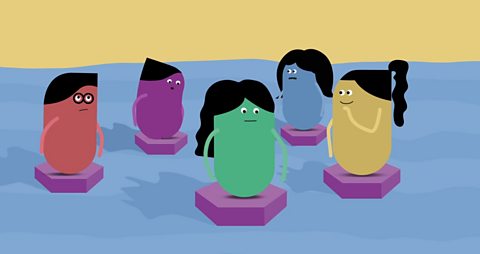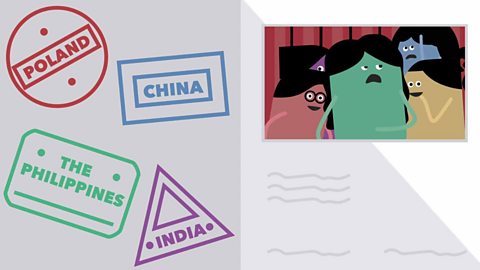
Community in the classroom
The best place to start creating tolerance and respect in the community is with children.
We want children to grow up being respectful of others, no matter who they are.
Schools work hard to ensure their environments are welcoming to children from different backgrounds. Here are some of the things they do to achieve this:
- adapt facilities for those with physical disabilities;
- provide special educational needs for those who need extra support with learning;
- implement anti-bullying policies;
- work with the Traveller community;
- set up cross-community projects to ensure pupils mix with those from other schools;
- celebrate different cultures by holding school events that showcase different religions, festivals, languages, and food (e.g. Chinese New Year);
- hold citizenship classes, religious education, school assemblies and other subjects to ensure that all pupils have equal opportunities to learn.

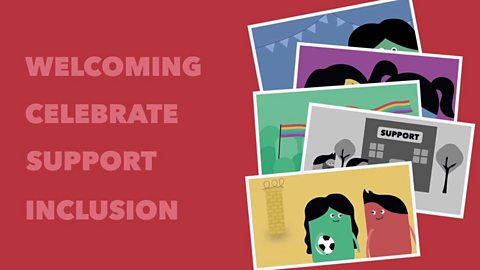
Local communities
There are a variety of community groups who work to bring people together and support peace.
- Local councils ensure there are a variety of festivals that cater to different cultures such as St PatrickÔÇÖs Day, the Twelfth of July, Chinese New Year, and the Hindu festival, Mela.
- Community groups offer support to victims of sectarianism, racism, stereotyping or prejudice. They also provide commentary to the media on community relations at a local level to increase awareness of particular issues.
- Cross-community groups work specifically to promote harmony between Catholics and Protestants. They arrange events and workshops so that people from different religious backgrounds can interact with each other. They also:
- provide neutral ground to hold discussions. This provides an opportunity for each side to better understand the other, and increases the chances of reaching compromise;
- find neutral mediators to facilitate discussions. The mediator can set the agenda, create deadlines for action, and persuade each side to work with the other.

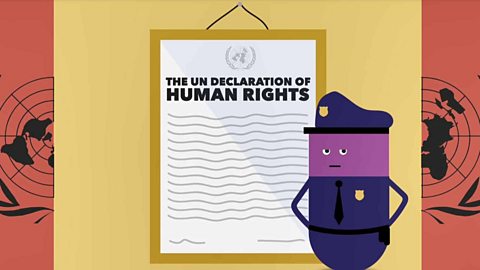
Government
Governments can provide opportunities for people from opposing groups to engage in shared activities in order to build trust and foster good relationships.
Law enforcement
The law has a big part to play in ensuring everyone works together and gets a fair deal.
There is a judicial system in place across the UK and Ireland, which means people who mistreat others based on their cultural identity are prosecuted.
The judicial system in the UK and Ireland has a responsibility to prosecute those who mistreat others based on their cultural identity.
There are laws against discrimination in the workplace. Everyone must be treated fairly under these laws, enjoy equal opportunities, and receive equal pay for the same work regardless of gender, race, or religion.
Beyond the UK and Ireland
The United NationsÔÇÖ Universal Declaration of Human Rights aims to ensure that everyone enjoys the same rights, no matter where they are.
When it comes to international conflicts, the UN plays a key role in ensuring victims of persecution and violence are treated fairly. The UN can send in peace-keeping forces to areas of conflict.
Some governments use sanctions or boycotts as a way to try and stop conflict in other countries.
For example, a government may choose stop trading with a country where there is conflict; this would mean refusing to work with them and imposing financial restrictions or barriers.
These are known as sanctions.
It's not just governments which can respond in this way if they feel a country is behaving badly toward its own people.
Citizens in one country may refuse to buy goods or produce from a country if they feel there are human rights breaches - this is known as a boycott.

More on Local and global citizenship
Find out more by working through a topic
- count4 of 5
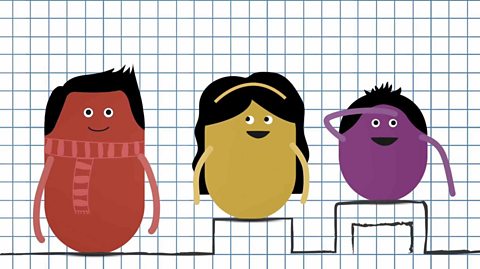
- count5 of 5
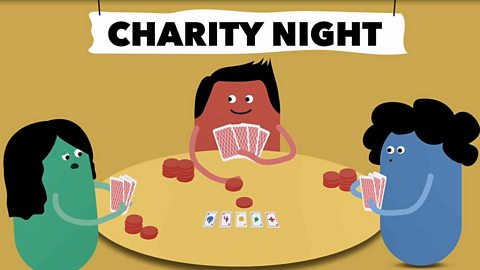
- count1 of 5
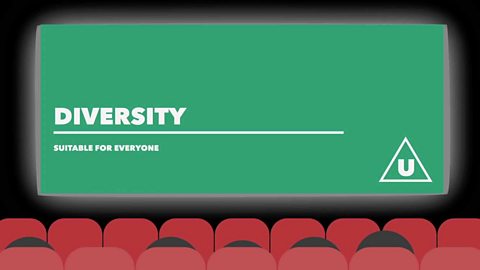
- count2 of 5
